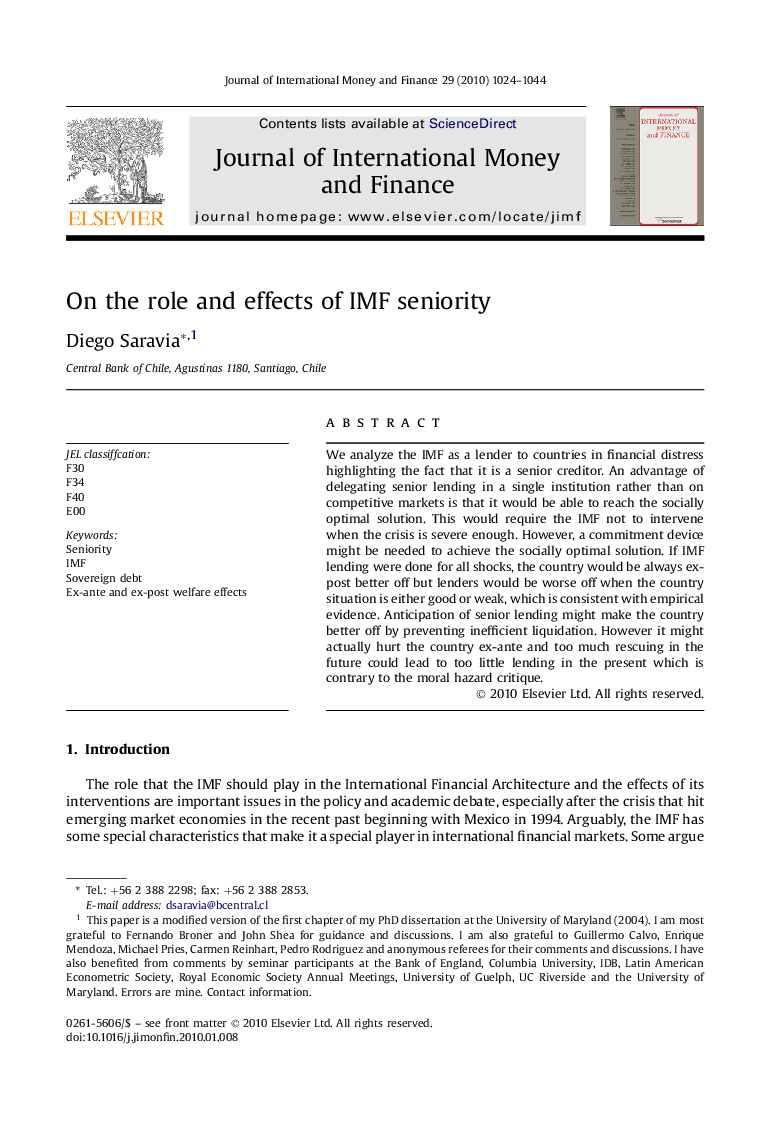| Article ID | Journal | Published Year | Pages | File Type |
|---|---|---|---|---|
| 964310 | Journal of International Money and Finance | 2010 | 21 Pages |
We analyze the IMF as a lender to countries in financial distress highlighting the fact that it is a senior creditor. An advantage of delegating senior lending in a single institution rather than on competitive markets is that it would be able to reach the socially optimal solution. This would require the IMF not to intervene when the crisis is severe enough. However, a commitment device might be needed to achieve the socially optimal solution. If IMF lending were done for all shocks, the country would be always ex-post better off but lenders would be worse off when the country situation is either good or weak, which is consistent with empirical evidence. Anticipation of senior lending might make the country better off by preventing inefficient liquidation. However it might actually hurt the country ex-ante and too much rescuing in the future could lead to too little lending in the present which is contrary to the moral hazard critique.
